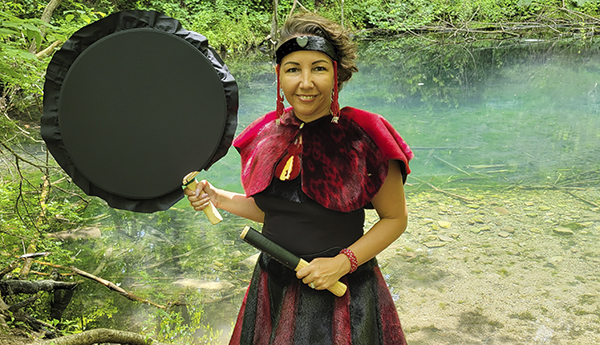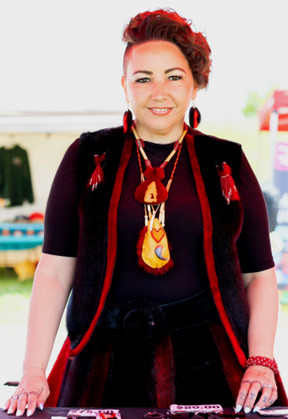Preserving and revitalizing Indigenous languages
Tân’si, Ullaakuut, Aaniin and Kwei mean “Hello” in Cree, Inuktitut, Ojibway and Atikamekw, respectively. These are only a few of the approximately 70 Indigenous languages spoken across Canada. They’re a fundamental and valued part of our culture and society, and it’s crucial we preserve them. As part of the Government of Canada’s engagement to support Indigenous language revitalization, the Translation Bureau at Public Services and Procurement Canada (PSPC) plays an active role in the preservation and revitalization of First Nations, Inuit and Métis Peoples’ languages.
In recent years, the demand for Indigenous language translation services has increased with the implementation of the Indigenous Languages Act. For the Bureau, it means offering broader translation and interpretation services for events such as debates in the House of Commons and the Senate, or the simultaneous interpretation provided during Pope Francis’ trip to Canada in July 2022.
To meet the demand, the Bureau has had to find translators and interpreters in various Indigenous languages. To ensure that they’re offering the best support for Indigenous languages and to maintain service continuity, the Bureau created 2 Indigenous language lead project officer positions.
Relationship-based recruitment
Vanessa Brousseau, who’s Inuk and Ojibwe, is one of the Indigenous languages lead project officers. She’s in charge of recruiting both interpreters and translators in order to offer better accessibility to Indigenous languages.

“I have developed a presentation specifically for Indigenous organizations to spread awareness about the Bureau and what we do, in the hopes of recruiting within Indigenous communities,” said Vanessa. In the near future, they also plan to reach out to training centres and universities across Canada to broaden recruitment of Indigenous interpreters and translators.
Vanessa’s goals are to increase the number of Indigenous freelancers for interpretation and translation services, and to strengthen the relationship between Indigenous freelancers and the Bureau. “We prioritize specific Indigenous languages based on demand that we currently are not able to meet due to a lack of Indigenous freelancers in these languages.”
One of Vanessa’s biggest challenges for recruitment is “the space I need to cover as I am recruiting all over Canada. I have created a plan to not only recruit physically, but to recruit virtually as well,” she added. She and her colleague have started to visit Indigenous communities to build relationships that they hope will help identify new freelancers.
Calls to action
Providing a variety of services in Indigenous languages is part of the Bureau’s mandate. It’s also an obligation stemming from the Calls to Action found in the Truth and Reconciliation Commission of Canada: Calls to Action report.
Call to Action number 13 refers to an acknowledgement that Indigenous rights include Indigenous language rights. Call to Action number 14 states the urgency to preserve, revitalize and strengthen Indigenous languages; the need for funding to reflect the diversity of languages; and the fact that these languages represent a fundamental and valued element of Canadian culture and society.

Based on these Calls to Action, Vanessa’s additional duties are to provide the Bureau with culturally appropriate training and resources, and to maintain and support current Indigenous freelancers. “Interpretation and translation services will benefit not only Indigenous Peoples and their communities, but also Canadian society overall, as communication will be increasingly understood between Indigenous Peoples and those who do not currently understand their language, providing a stronger relationship,” explained Vanessa.
The Bureau has been active in supporting the Government of Canada in its efforts to communicate with and serve Canadians by expanding its interpretation and translation services to more Indigenous communities from coast to coast to coast.
In addition, through the Language Portal of Canada, the Bureau provides a collection of Indigenous languages resources to support the preservation and revitalization of Indigenous languages. To learn more about these resources, visit the Language Portal of Canada.
To discover more articles about Public Services and Procurement Canada people and projects making a difference in the lives of Canadians, check out Our stories.